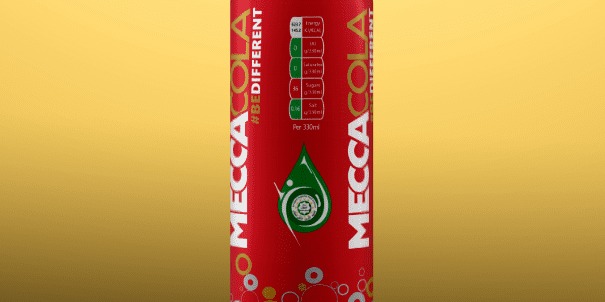A year in, the ongoing conflict in Israel and Gaza has had a profound impact on brands and businesses in the UK and around the world, particularly those perceived to have connections or inclinations towards Israel or Palestine.
This article explores these impacts and the rise of alternative beverage options in the UK market.
Effects on brands and businesses:
Several brands have faced calls for boycotts from activists and groups supporting Palestine. This includes companies seen as supporting Israel or operating in contested territories.
Importantly, these boycotts are not limited to Muslim consumers but include a diverse range of individuals who advocate for justice and oppose occupation.
Brands that made statements or took stances related to the conflict have also faced significant backlash on social media. This has led to reputational challenges and forced companies to reassess their public communications strategies.
To counter rising consumer wrath, some companies have altered their marketing strategies or public relations approaches. These changes aim to avoid alienating customers or to align with public sentiment.
In terms of bottom lines, certain sectors, especially those linked to tourism or international business, have faced and may continue to experience financial repercussions. This is due to changing consumer behaviour and increased scrutiny of companies' geopolitical stances.
Additionally, companies operating in or sourcing from the region may need to reassess their supply chains in light of the conflict. This could lead to changes in procurement strategies and potentially affect product availability or pricing.
Rise of alternative beverages:
In response to boycotts of major brands like Coca-Cola and Pepsi, several alternative beverage options have gained prominence in the UK and European markets.
Some of the generic alternative soft drinks include Karma Drinks, known for its organic soft drinks and ethical sourcing; Pop Soda, which is said to focus on craft sodas with unique flavours and natural ingredients; Lixir Drinks, which specialises in low-calorie mixers and soft drinks; and Cawston Press, which offers sparkling fruit drinks made from pressed fruit with no artificial additives.
Some emerging 'ethnic' cola brands have emerged to cater specifically to consumers looking for alternatives to major cola brands. These include: Mecca Cola, which was launched in France in 2002, and has since gained popularity in European Muslim communities.
Then there is Zamzam Cola, an Iranian brand that has found a market in some European countries. Others include Evoca Cola, a British brand that markets itself as an ethical alternative to mainstream colas; Qibla Cola, a UK-based brand that emphasises ethical consumption; and Yo Cola, a new British brand.
These brands often market themselves as socially conscious alternatives, appealing to consumers who are looking to align purchasing decisions with their values.
Broader implications:
The emergence of these alternative brands reflects a growing trend of conscious consumerism. It demonstrates how geopolitical events can significantly influence market dynamics and consumer behaviour.
The situation also highlights the increasing importance of brand values and ethical stances in consumer decision-making. It shows the potential for niche markets to grow rapidly in response to changing societal attitudes.
The Israel-Gaza conflict has had far-reaching effects on the UK business landscape, particularly in the beverage industry. As consumers become more aware of the geopolitical implications of their purchasing decisions, brands are forced to navigate complex ethical territories.
The rise of alternative beverage options, especially in the cola market, illustrates the market's ability to adapt to these changing consumer preferences and values.
Naved Syed is a UK-based halal food and beverage consultant


Naved Syed